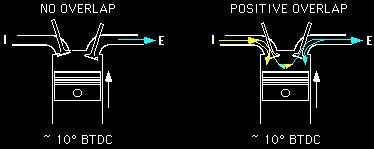Increase Engine Torque: Fine-Tune Your Camshaft Timing
Engine torque—that satisfying grunt that propels your vehicle forward—is a highly sought-after characteristic among car enthusiasts. While horsepower dictates top speed, torque is the raw power that gets you moving, especially important for towing, hauling, or navigating steep inclines. One often-overlooked method for boosting torque is fine-tuning your camshaft timing. This process, while potentially complex, can yield significant results when done correctly. This article will explore how adjusting camshaft timing can increase engine torque and address common questions surrounding this modification.
What is Camshaft Timing?
Before diving into adjustments, it's crucial to understand the basics. The camshaft is a crucial component within your engine, responsible for controlling the opening and closing of your engine's valves. These valves regulate the intake of air and fuel and the exhaust of spent gases. Camshaft timing refers to the precise moment when these valves open and close relative to the piston's position. This timing is critical for optimal engine performance. Even small variations can significantly impact power delivery and efficiency.
How Does Camshaft Timing Affect Torque?
Precise camshaft timing ensures that the valves open and close at the ideal points in the combustion cycle. Optimal timing maximizes the cylinder's filling efficiency with the air-fuel mixture, leading to a more powerful and controlled explosion. Improper timing, conversely, can lead to incomplete combustion, reduced power, and lower torque.
By carefully adjusting the camshaft timing, you can fine-tune the overlap between the intake and exhaust valves. This overlap, the period when both valves are slightly open, influences the scavenging effect—the process of clearing out exhaust gases to make room for the fresh air-fuel mixture. A carefully adjusted overlap can enhance scavenging, improving combustion and ultimately boosting torque.
Can Adjusting Camshaft Timing Increase Torque? Yes, but…
Adjusting camshaft timing can significantly increase torque, particularly in the lower to mid-range RPM. However, it's not a simple "turn a knob and gain power" scenario. Several factors must be considered:
- Engine Type: The effectiveness of camshaft timing adjustments varies greatly depending on the engine's design (e.g., inline, V, rotary).
- Existing Modifications: Other engine modifications, such as exhaust systems and intake manifolds, interact with camshaft timing. Changes should be considered holistically.
- Expertise Required: Incorrectly adjusting camshaft timing can severely damage your engine. This is not a beginner-level modification and often requires specialized tools and knowledge.
What are the potential risks of adjusting camshaft timing?
H3: What are the potential risks of adjusting camshaft timing?
Improper camshaft timing adjustment can result in several negative consequences:
- Reduced Power: Incorrect settings can lead to significantly reduced power output, making your vehicle sluggish and underperforming.
- Engine Damage: Extreme mistiming can cause valve damage, piston damage, or even catastrophic engine failure.
- Poor Fuel Efficiency: Incorrect timing can lead to incomplete combustion, resulting in wasted fuel and reduced fuel economy.
- Increased Emissions: Poor combustion also results in increased emissions, potentially failing emissions tests.
How is Camshaft Timing Adjusted?
Camshaft timing adjustment methods depend on the engine and its design. Some engines allow for adjustment through variable valve timing (VVT) systems, often controlled electronically. Others require more involved mechanical adjustments, often involving changing gears or adjusting the camshaft sprocket. These mechanical adjustments are significantly more complex and require specialized tools and expertise. Attempting mechanical adjustments without proper knowledge is strongly discouraged.
Does advanced camshaft timing always increase torque?
H3: Does advanced camshaft timing always increase torque?
No, advancing camshaft timing doesn't always lead to increased torque. While advancing the timing can improve low-end torque in some instances, excessive advancement can reduce high-end power and negatively impact overall performance. The optimal timing is highly dependent on several engine-specific factors and requires careful calibration.
What tools are needed to adjust camshaft timing?
H3: What tools are needed to adjust camshaft timing?
The necessary tools vary greatly depending on the engine type and adjustment method. It can range from simple timing light and adjustment tools for basic mechanical adjustments to specialized software and diagnostic equipment for electronically controlled VVT systems. Always consult a repair manual specific to your vehicle before attempting any adjustments.
Conclusion:
Fine-tuning camshaft timing offers the potential for significant torque increases, but it's a modification that demands expertise and careful consideration. Incorrect adjustment can lead to serious engine damage. If you're not experienced in engine mechanics, it's best to consult with a qualified professional. Understanding the intricacies of camshaft timing and its impact on engine performance allows for more informed decisions regarding modifications and ensures the long-term health of your vehicle.

